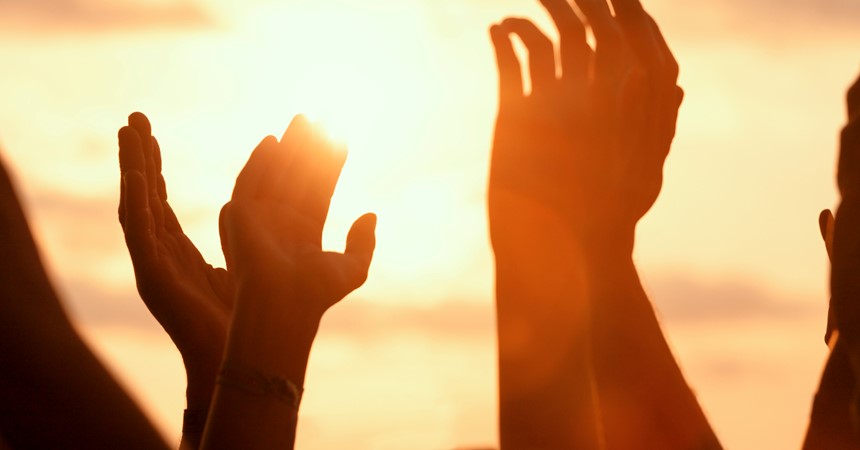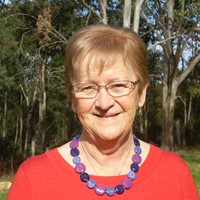Is it the new buzz word, a new religion or something else?
In fact, spirituality is not a new concept in the Catholic world. Throughout the past 20 centuries, there have been many different expressions of spirituality to gather and enrich people’s experience of God – the life and prayer of the Beguines, the mystics, the desert fathers as well as of many religious congregations. We have known different expressions of spirituality in the East and the West giving form to their rich cultural differences. In more recent decades many have identified with the spirituality of religious congregations such as the Franciscans, Dominicans, Mercies and Josephites, and found a personal path through the practices of these spiritualties. We have formed sodalities, leagues, prayer groups – all of which give a sense of belonging to the time and place of varying communities.
I understand spirituality to be a particular emphasis which gives voice to or makes sense for individuals in their ongoing journey toward transformation. It is not a new religion nor is it an escape from religion. It is a deep yearning within, an energy that celebrates the connection with the Other – with God – a connection which takes me beyond myself and my wants. Spirituality clarifies a particular way or path which, for Christians, supports and enables each person to engage in a lively following of the gospel message. For instance, the Franciscan path, among other things, is inclusive of the whole environment, whereas Mercy spirituality gives emphasis to service within the abundance of God’s love. However, in the developing theological awareness of our interconnectedness with all of life, Mercy spirituality for the Sisters of the Institute within Australia and Papua New Guinea is gaining a new emphasis.
As a Sister of Mercy I am called through our Constitution to celebrate that “the tender mercy of our God has given us one another. Just as the first followers of Jesus were known by their love and service to one another, so too is mutual love at the heart of our call to be Sisters of Mercy...” In 2012 a new emphasis was added to our Constitution: “We are conscious also that our union is in the Christ of the Cosmos…. we know that as members of the Earth Community we are integrally connected with each other and with the whole of creation. (Constitution of Institute of Sisters of Mercy of Australia and Papua New Guinea 2.01-2.20)”
Anthony de Mello sj, in his book of stories entitled The Song of the Bird (1985), writes on the question of spirituality in a piece called “True Spirituality”:
The Master was asked, “What is Spirituality?”
He said, “Spirituality is that which succeeds in bringing one to inner transformation.” “But if I apply the traditional methods handed down by the Masters, is that not Spirituality?”
“It is not Spirituality if it does not perform its function for you. A blanket is no longer a blanket if it does not keep you warm.”
“So Spirituality does change?”
“People change and needs change. So what was Spirituality once is Spirituality no more. What generally goes under the name of Spirituality is merely the record of past methods.”
De Mello was profoundly influenced by mystical traditions, both Christian and nonreligious. However, he always returned to his church knowing it to be his spiritual home, despite being acutely aware of the limitations and narrowness that emerge within the church at various times.
Today, many are feeling equally embarrassed and humiliated by abusive activity within our institutions including the church and ‘going my own way’ seems a good option. Searching outside home can be a good thing. Searching for new expressions that will enable a richer relationship with God is to be commended – especially when, like de Mello, each person knows she is also welcome back home!
The American mythologist, writer and lecturer, Joseph Campbell (1904- 1987), who is best known for his work in comparative mythology and comparative religion, outlined four basic mythic motifs that are common to all religions. They are the virgin birth (that which comes from seemingly nothing, for example the creation story); the wounded healer (knowing my own vulnerability and need enables me to truly listen to another); the saving action (learning of and identifying with those who have been faithful and sought to enable others to enter into transformation), and the life/death/life pattern (having faith and hope that letting go of one way of life through death enables another life to come forth). You may wish to read The Hero and a Thousand Faces (1949).
Listening for these motifs in the stories of other religions and traditions – even folk tales – becomes an invitation to enrich our awareness of God’s presence in all of life, to give articulation to our combined walk in faith – our spirituality. The varying forums created in more recent times to provide the exchange of story, developing theology, as well as academic studies, have greatly enriched our faith community. Taking the conversation into the market place, even to the pub (Spirituality in the Pub, Pints with a Purpose), has enabled many to rediscover a passion and reconnect with a spirituality that gives meaning to their lives. Newer forms of old practices such as pilgrimage have also taken hold of our imagination and are giving meaningful form to the spiritual experience.
Joseph Campbell is often summarised by his phrase, “Follow your bliss.” Again, this is not about going my way or doing it my way, but finding the path that encourages, challenges and makes sense for each one, clarifying the spiritual path which, in turn, leads each to relate to community, to earth, to all peoples, and at the right time, to return home, singing the song of her/his soul.
Anne Ryan rsm is Program Co-ordinator at Mercy Spirituality Centre, Toronto. To enquire about the Centre’s offerings, P 4959 1025 or E mercytoronto@ mercy.org.au. Please visit http://institute. mercy.org.au/Toronto




























































































